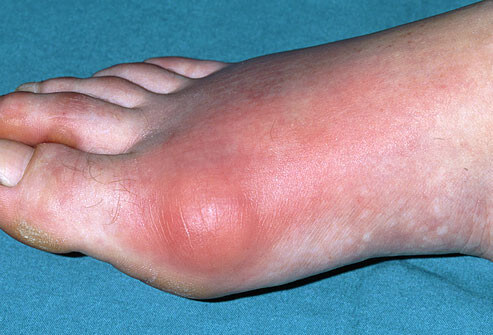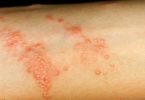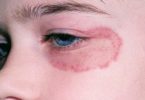Gout Overview
Gout a complex form of arthritis can affect anyone. Men are more likely to get gout, but women become increasingly susceptible after menopause.
Gout is characterized by sudden, severe attacks of pain, redness and tenderness in joints, often the joint at the base of the big toe.
An acute attack of gout can wake you up in the middle of the night with the sensation that your big toe is on fire. The affected joint is hot, swollen and so tender that even the weight of the sheet on it may seem intolerable.
Fortunately, gout is treatable, and there are ways to reduce the risk that will recur.
Gout is a kind of arthritis. It can cause an attack of sudden burning pain, stiffness, and swelling in a joint, usually a big toe. These attacks can happen over and over unless it is treated. Over time, they can harm your joints, tendons, and other tissues.
Gout is caused by too much uric acid in the blood. Most of the time, having too much uric acid isn’t harmful. Many people with high levels in their blood never get it. But when uric acid levels in your blood are too high, the uric acid may form hard crystals in your joints.
Your chances of getting gout are higher if you are overweight, drink too much alcohol, or eat too much meat and fish that are high in chemicals called purines. Some medicines, such as water pills (diuretics), can also bring on gout.
The most common sign of gout is a nighttime attack of swelling, tenderness, redness, and sharp pain in your big toe. You can also get gout attacks in your foot, ankle, or knees, or other joints. The attacks can last a few days or many weeks before the pain goes away. Another attack may not happen for months or years.
To stop a gout attack, your doctor can give you a shot of corticosteroids or prescribe a large daily dose of one or more medicines. The doses will get smaller as your symptoms go away. Relief from a gout attack often begins within 24 hours if you start treatment right away.
To ease the pain during a gout attack, rest the joint that hurts. Taking ibuprofen or another anti-inflammatory medicine can also help you feel better. But don’t take aspirin. It can make gout worse by raising the uric acid level in the blood.
Medical conditions
Gout frequently occurs in combination with other medical problems. Metabolic syndrome, a combination of abdominal obesity, hypertension, insulin resistance, and abnormal lipid levels, occurs in nearly 75% of cases. Other conditions commonly complicated by gout include: polycythemia, lead poisoning, renal failure, hemolytic anemia, psoriasis, and solid organ transplants. A body mass index greater than or equal to 35 increases a male’s risk of gout threefold. Chronic lead exposure and lead-contaminated alcohol are risk factors for gout due to the harmful effect of lead on kidney function. Lesch-Nyhan syndrome is often associated with arthritis.





